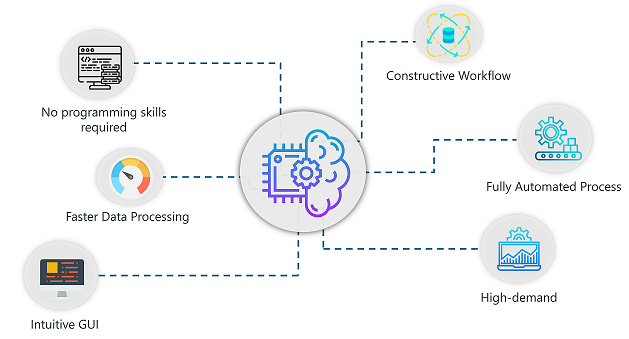Data science: Master machine learning without coding
Data science is a field that involves using scientific methods, algorithms, and systems to extract knowledge and insights from data. While coding is a valuable skill for a data scientist to have, it is not necessary to master machine learning without it. Here are six key points to consider when learning machine learning without coding:
Understand the basics of statistics and probability. A strong foundation in statistics and probability is essential for anyone looking to master machine learning. These concepts are used to develop and evaluate machine learning models, so it's important to have a solid understanding of them.
Explore different types of machine learning. There are several different types of machine learning, including supervised learning, unsupervised learning, and reinforcement learning. It's important to understand the differences between these types and how they can be applied to different problems.
Use data visualization tools. Data visualization is a crucial part of the data science process, and it can be a powerful tool for exploring and understanding machine learning models. There are many different tools and techniques for visualizing data, and it's important to experiment with them to see what works best for you.
Learn about the various algorithms and techniques used in machine learning. There are many different algorithms and techniques used in machine learning, and it's important to have a good understanding of them. This will allow you to select the right algorithm for a given problem and tune its parameters to get the best possible results.
Work with real-world data. It's one thing to understand the concepts and algorithms used in machine learning, but it's another thing entirely to apply them to real-world data. The best way to learn is to get your hands dirty and start working with real data. This will help you understand the challenges and limitations of machine learning in practice.
Seek out resources and guidance. Learning machine learning without coding can be challenging, but there are many resources available to help you along the way. Look for online tutorials, books, and other resources that can provide guidance and support as you learn. You can also seek out the help of experienced data scientists or machine learning experts who can provide valuable insights and advice.
Data science course online
Data science is a growing field that involves using scientific methods, algorithms, and systems to extract knowledge and insights from data. An online data science course is a great way to learn the skills and knowledge needed to become a data scientist. Here are six key points to consider when looking for an online data science course:
Look for courses that cover a wide range of topics. A good data science course should cover a wide range of topics, including statistics, probability, machine learning, data visualization, and more. This will give you a well-rounded education and prepare you for a career in data science.
Choose a course with practical, hands-on experience. In addition to learning the theories and concepts of data science, it's important to get practical experience working with real data. Look for a course that includes hands-on projects and assignments that will help you develop the skills you need to succeed in the field.
Find a course that is taught by experienced instructors. The instructors for your online data science course should have extensive experience in the field and be able to provide guidance and support as you learn. Look for instructors with a strong track record of teaching and industry experience.
Consider the course format and schedule. Online courses can be flexible, but it's important to find a course that fits your schedule and learning style. Look for courses that offer a variety of formats, such as live lectures, pre-recorded videos, and interactive exercises.
Look for courses with a strong focus on real-world applications. The best data science courses will focus on teaching you how to apply your skills and knowledge to real-world problems. This will help you understand the challenges and limitations of data science in practice and give you a competitive edge in the job market.
Check for support and resources. A good online data science course should provide support and resources to help you succeed. This can include things like access to a community of other students, office hours with instructors, and additional learning materials. Make sure the course you choose offers the support and resources you need to succeed.


Comments
Post a Comment
If you have any doubts. Please let me know.